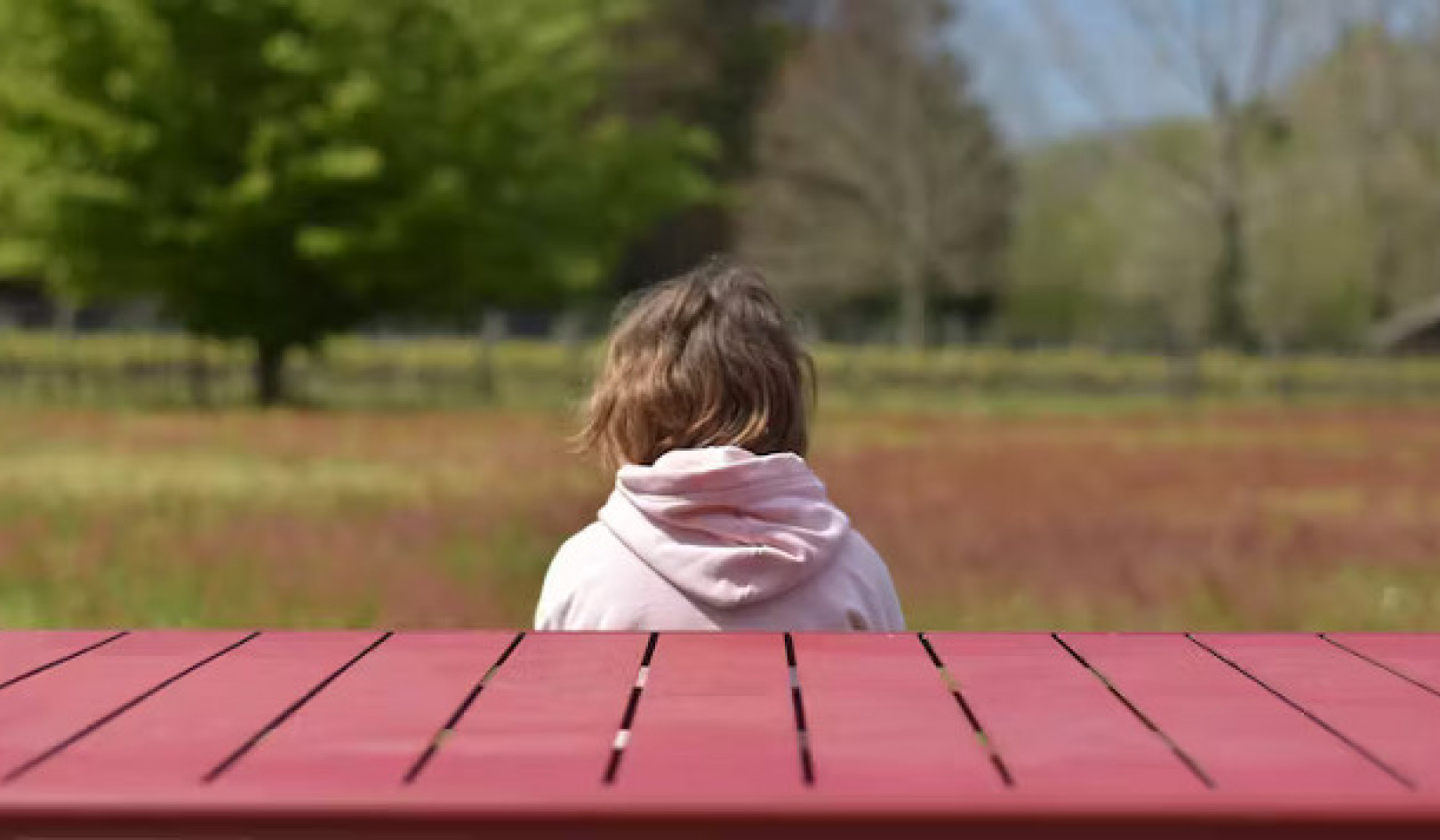
Image by S. Hermann & F. Richter
Here's a stunner: 64 percent of all marriages that began in 1990 ended in divorce by the turn of the millennium. And that's just in the first ten years. Who knows how many couples will be standing after the next ten?
What's especially unsettling about these numbers is that they set down in hard terms some of the pervasive, anecdotal observations many of us have collected on divorce, and the general splintering of the American family. Look behind the runaway divorce rate and you'll see what strikes us as an even more disturbing statistic: 70 percent of those failed marriages produced at least one child. Wow! That means that more children than ever before are being born into soon-to-be-broken homes. Throw in the disappointing ten-year period surrounding 1990, and the numbers look much the same, to where roughly half of all children born in this country over the past 15 years have ended up being children of divorce.
What was once an aberration has now become routine. Clearly, we could never hope to address the complicated and varied issues of parenting and divorce in a single chapter, and we don't set out to offer any kind of comprehensive text on what to expect from these rough patches. There's far too much ground to cover in a single volume, let alone a single chapter. But we do mean to share some thoughts and observations on the theme. We'll leave the far-reaching societal implications to others, along with the long-term, day-to-day guideposts for divorced parents, and focus instead on what we believe to be some of the central pieces of the fallout.
How Do You Talk To Your Kids About Divorce?
Once you and your spouse have come to the regrettable but unavoidable decision to call it quits, how do you sell the notion to your children? When are they old enough to understand? What, precisely, are they old enough to understand? What do you need to do to keep your kids emotionally healthy through such an emotionally destructive process?
The current state of divorce is almost always ugly. Matrimonial litigation in this country is predetermined to be ugly. That's what it's become -- an adversarial, take-no-prisoners system -- and there's often no getting around it. Even husbands and wives vowing to remain amicable are at each other's throats before it's all over. Step into the camp of your attorneys, and things will almost always turn volatile and nasty, and it's that nastiness that you and your ex are going to have to work double-time to keep from spilling over onto your children.
Stop and think about the swirl building up around you. If your relationship has deteriorated to where you need a third-parry mediator or a contentious litigation to divvy up the spoils or mete out custody arrangements, then surely some of that tension has been passed along to your children. Certainly, there's been some damage with respect to the way they regard their mother and father, and their relationship to each -- the kind of damage that cannot be so easily repaired.
Effects of Divorce on Kids
Let's backtrack a bit and overstate the obvious. In a divorce, it's absolutely imperative that both parents focus their full attentions on the mess they're making for their children. We're not suggesting that you stay together for the sake of the kids, but what we are imploring you to do is to get your baggage out of the way before you interact with your children. Set it aside. Don't let what's been poisoned between two adults also poison the essential relationship that remains with parent and child. Too often, parents spend more time fighting with each other than paying attention to the needs of their children -- and this at a time that could possibly be the most destructive in a child's life.
Kids who've been battle-scarred by divorce don't do as well in school as they might have; they don't have the emotional troubleshooting skills of their peers; they've given back chunks of their confidence and self-esteem. They're handicapped, in a very real way, by some of the very poor choices made by their parents. On the other hand, kids who've sailed through a divorce without incident tend to perform as well as their counterparts from traditional, two-parent, still-married households.
Take the contention out of the house. Completely. If things have gotten to the point where you and your spouse can no longer stand civilly in the same room with each other, find a way to stand civilly in the same room with each other. As we said, set your baggage aside and deal with your child. Respect certain boundaries. Agree not to scream at one another, or to blame one another in front of the kids. Pledge a sacred oath never to use your children as weapons, or to play one relationship against another. Find a way to communicate what's going on to your children in ways they might understand. It doesn't matter if your child is only a year old, he or she needs to be told, by both of you, in a loving way, as a family.
Typically, at the end of many marriages, it falls to the mother to explain the situation to the children, but we're here to tell those abdicating fathers to just sit their butts back down and deal with their kids. Treat them with respect. Do your job. Be there for your children. No matter what. We don't care how angry you are at your partner -- don't take it out on your kids!
When Montel and his second wife decided to split, they sat down with their two young children and spelled things out for them. It was a profoundly sad, yet truly loving moment. Each parent took turns holding each child. At one point, Montel II and Wynter-Grace were both in Montel's lap; at another, they were both with their mother. It wasn't an orchestrated thing, but the back-and-forth between mother and father was a physical, tangible way for the kids to feel loved, to know that as much as things were going to be different, they would also be a little bit the same. They'd all be able to reach out for each other and hold each other, as before. Mom and Dad weren't going to disappear.
The conversation followed the usual path: No, the fact that we can't live together in no way changes the way we feel about you; no, it's not your fault; yes, we will always be a family. Wynter Grace didn't really understand the term divorce, but she got the concept. How could she not get the concept? Even at five years old, so many of her little friends had already been through the same motions that she knew the deal. But more than what was said was how it was said, and it was said with love and care and compassion. In fact, Mom and Dad were so careful to keep the tension between them from spreading throughout the house that the kids were really surprised by this turn of events. The adults had been going back and forth for months; they'd done their fair share of hollering and crying -- but they managed to do it behind closed doors, away from the children. The children had no idea.
The Importance Of How You Explain What's Happening
We don't mean to diminish the importance of what was said -- in Montel's house, or in yours -- we just want to highlight the importance of how it was said. The what is also significant, and perhaps the most significant aspect of the conversation is the universal question of blame. It comes up in virtually every divorce. It's incredibly important for kids to hear they're not at fault. In almost every case, children of divorce internalize things to where they figure that it was their bad behavior that somehow triggered the tension between their parents.
Let your children know that such feelings are nonsense, without making them feel foolish for expressing them. Tell them that it's a common and natural reaction to feel as if they might have done something to drive their parents apart. Tell them how it gets in kids' heads to where it takes on a life of its own. See if that's how it is with them.
The other essential element is to talk up the benefits of family. Your family. Remind your children that no matter what happens, that even though Mom and Dad won't be living together, you will still be a family. Now and forever. Make a family tree if you have to, to illustrate the point. No matter what, the message should be: We will always appear on that family tree as a unit. There is no dividing us. We will stay a family as long as we're on this planet. And here it's not enough to say it -- parents have to live up to their words. At family gatherings, set aside your differences and participate together. At life-cycle events, remember your promise to your children. If your ex's father dies, be sure to attend the funeral -- and take part in the private, family mourning, too. After all, the man was the grandfather of your children.
Make The Effort For Your Children
In good times and in bad, the children must continue to see you, face-to-face, as civil, communicating adults. If there's anger or door-slamming at the front and back ends of visitation times, the children will take that as slamming the door in their faces. Even if it's not totally genuine, make the effort for your children. Make the effort, and succeed at it. And save the venting for another time and place.
Punctuate the process by highlighting for your kids that the intended by-product of the divorce is a happier set of parents. (After all, isn't that the point of the whole deal?) The parents may no longer be together, under the same roof, but if each was driving the other crazy, then it follows that each will become a happier, healthier person in the transformation. Stress that this "recovery" will result in richer, more honest relationships with each parent -- and more one-on-one quality time than the child might know what to do with.
One of the great exercises that Jeff uses in family therapy and divorce mediation is to get divorcing couples to draft and sign a parenting contract that spells out what each expects from the other, and reconfirms their shared commitment to the emotional health of their children. It's not a binding contract -- in fact, Jeff has run into some interference from attorneys who don't want such a document muddying up the rest of their divorce paperwork -- but it can be a powerful tool.
Keep the lawyers out of it. "This is what we're going to do. This is what we're not going to do." Spell it all out. Any loving parent, when pressed, can find a way to resolve their issues and produce a workable, loving agreement of this kind. Instead of focusing on what you've done wrong and how much you hate each other, keep the focus on your children. What do you want for them in the months ahead? What kind of environment do you want them to grow up in? What sort of relationship do you want them to have with your ex?
Do What's Best for the Kids
Visitation, as far as we're concerned, shouldn't even be an issue. More and more, the courts are dealing with cases of joint custody -- and this, at least, is a silver lining to the black cloud. Assume joint custody. Make it a given, and reach for it if you can. If circumstances push you in another direction, that's something else, but if there's a way to make joint custody work, then make it work. Why? Well, back when you had the kids, you presumably had at least an unspoken agreement to raise those children together, to the best of your shared abilities.
We're not suggesting anything radical here -- just that you stick to that basic agreement. Raise your children together. Naturally, one of you will wind up with domicidal custody, and the other with visitation rights, but try to think in terms of what's best for your kids, not what's best for you. But take extra care, if you are the out-of-the-house parent, to ensure that your children are not made to think that you're throwing them out with the spouse. Notice that we didn't use the unfortunate phrase the out-house parent, which might accurately describe the shitty role many visitation parents embrace for themselves, or the way some in-house parents send signals to their children that this other parent simply isn't useful to them anymore.
In most instances, the out-of-the-house parent will be the father, and it's crucial for the dad to keep fundamentally connected to every aspect of his children's lives. Dads, if you walk away, there's a good chance your kids will wind up in the system in some way, as a negative statistic. Stick around, and keep to a regular visitation schedule that's tighter than once a week. If you're only able to manage weekends, make sure to call as often as possible. Set aside a time that works well for you and for your ex-spouse. And know that, for the first couple of years anyway, your kids will still probably want to talk about the divorce. Over and over and over. Keep the discussion simple, and age-appropriate, but do offer specific answers to specific questions. It's not necessary to talk about your sex life with your ex, but it is necessary to respond to the question. If infidelity played a part in the breakup, there's no need to spell this out to your kids -- unless of course it's something they're picking up outside the house, in which case you'll want to find a way to express the truth in a manner they can understand.
And if something comes up that you haven't anticipated in your parenting contract, find a way to deal with it. Compromise. If your children ask to see the out-of-the-house parent on an "off' weekend, make it happen. If they want to join a traveling soccer team that requires an every-weekend commitment, help them make that commitment. Remember, it wasn't the children who couldn't find a way to make things work; it was you and your spouse. There's no need to punish them any more than your situation already has.
Live Up To Whatever Bargains You've Made With Your Kids
Live up to whatever bargains you've made with your kids. Don't find yourself a girlfriend in another state, or go looking for that dream job halfway across the country. If these things find you, then you'll find a way to deal with them, but try to keep up your end of the deal, and your end of the deal is to hang around. There are a hundred ways to smooth over a disappointment, but no real way to sandpaper those rough spots. We know of one enterprising parent who uses e-mail to keep in constant touch with his child -- and while this is a good thing, and far better than no communication at all, it's not nearly enough to make up for the every-other-weekend visitation deal they've got cooking, for the school plays the father is missing, and the bottom-of-the-ninth at-bats he'll never get to see.
Get out of the blame business as quickly as possible. Once the divorce has happened, it's happened. There is no longer blame. Even if your kids never hear you articulating blame, or actually see you pointing a finger, they'll pick up on it if you hold on to it, so let it go. It's over, done. It's time to move on -- to a shared future where you can raise your children together with respect, hope, and love.
If you don't respect the relationship you share with your child, then you don't respect the child. Quit those silly, disrespectful games that often accompany divorce, such as fighting and bickering over dollars and cents. The money is pretty much always going to be an issue, at whatever level you are. Goodness, even at the extreme levels, it's an issue. (As we write this, there's a story kicking around the tabloids about a wealthy businessman whose wife is seeking more than $6 million a year in child support. Six million dollars! Not in alimony -- child support! As if the kid is the one who's become accustomed to a certain profligate lifestyle.) Divide by 10, or 100, or 1000 to find your way back to your own ballpark, and then treat each other decently if you hope to treat your children decently.
Don't Hold Out Any False Hopes
Finally, don't hold out any false hopes that things might return to how they were. Family therapists agree that one of the most damaging messages you can send your children in the swirl of divorce is the wishy-washy prospect that maybe the bad stuff will go away and the good stuff will return. For whatever reason, some parents are afraid to close the door on their kids' dreams. Chances are that your children have probably seen any number of those Disney-type, get-the-parents-back-together movies about divorce, and chances are ... those movies do more harm than good.
You've seen The Parent Trap, right? Two identical teenage girls, separated at birth by divorcing parents, conspire to bring those same parents back together to live happily ever after -- as a family. It might be wonderful, escapist entertainment, but for children of divorce, especially freshly minted children of divorce, such a mixed message can be enormously destructive. Be sure not to give the impression that your divorce is anything but final. Don't hold out any hope that you or your spouse will ever get back together, because any ounce of hope you might secretly hold for yourself will become a couple hundred pounds of the stuff for your kids.
Don't feed the fantasy. The divorce, and the resulting new living arrangements, should be presented as final. If, by some unexpected twist of fate, you and your spouse decide to get back together at some later point, the news will be greeted as a happy surprise by your kids, and not as an inevitability that it took you a little too long to recognize.
Reprinted with permission of Mountain Movers Press,
an imprint of Hay House Inc. ©2000. http://www.HayHouse.com
Article Source
Practical Parenting
by Montel Williams and Jeffrey Gardere, Ph.D.
 In this work, Montel Williams delves into the difficult issue of how to parent our children in the complex world we live in. Williams offers his own thoughts on each topic, based on his experience in the military, the media and the world at large.
In this work, Montel Williams delves into the difficult issue of how to parent our children in the complex world we live in. Williams offers his own thoughts on each topic, based on his experience in the military, the media and the world at large.
Info/Order this book.
About the Authors
 Montel Williams is the Emmy Award-winning host of the nationally syndicated Montel show. As a highly decorated former Naval intelligence officer, motivational speaker, actor, and humanitarian, Williams is an example of personal achievement for people throughout the country. He is the author of several books: the New York Times bestseller Mountain, Get Out of My Way; an inspirational book called Life Lessons and Reflections; and the proud father of four children. Visit his website at www.montelshow.com
Montel Williams is the Emmy Award-winning host of the nationally syndicated Montel show. As a highly decorated former Naval intelligence officer, motivational speaker, actor, and humanitarian, Williams is an example of personal achievement for people throughout the country. He is the author of several books: the New York Times bestseller Mountain, Get Out of My Way; an inspirational book called Life Lessons and Reflections; and the proud father of four children. Visit his website at www.montelshow.com
 Jeffrey Gardere, Ph.D., a practicing clinical psychologist, has appeared on nearly every major talk and news show on radio and television. He currently hosts Hit It, a relationship advice show on WLIB radio in New York. "Dr. Jeff," as he is called by fans and patients alike, is the founder and CEO of Rainbow Psychological Clinics, a culturally sensitive program providing psychological health care for children, adults, and families in the New York tristate area. Dr. Jeff is the author of Smart Parenting for African-Americans, and is a married father of two children.
Jeffrey Gardere, Ph.D., a practicing clinical psychologist, has appeared on nearly every major talk and news show on radio and television. He currently hosts Hit It, a relationship advice show on WLIB radio in New York. "Dr. Jeff," as he is called by fans and patients alike, is the founder and CEO of Rainbow Psychological Clinics, a culturally sensitive program providing psychological health care for children, adults, and families in the New York tristate area. Dr. Jeff is the author of Smart Parenting for African-Americans, and is a married father of two children.























